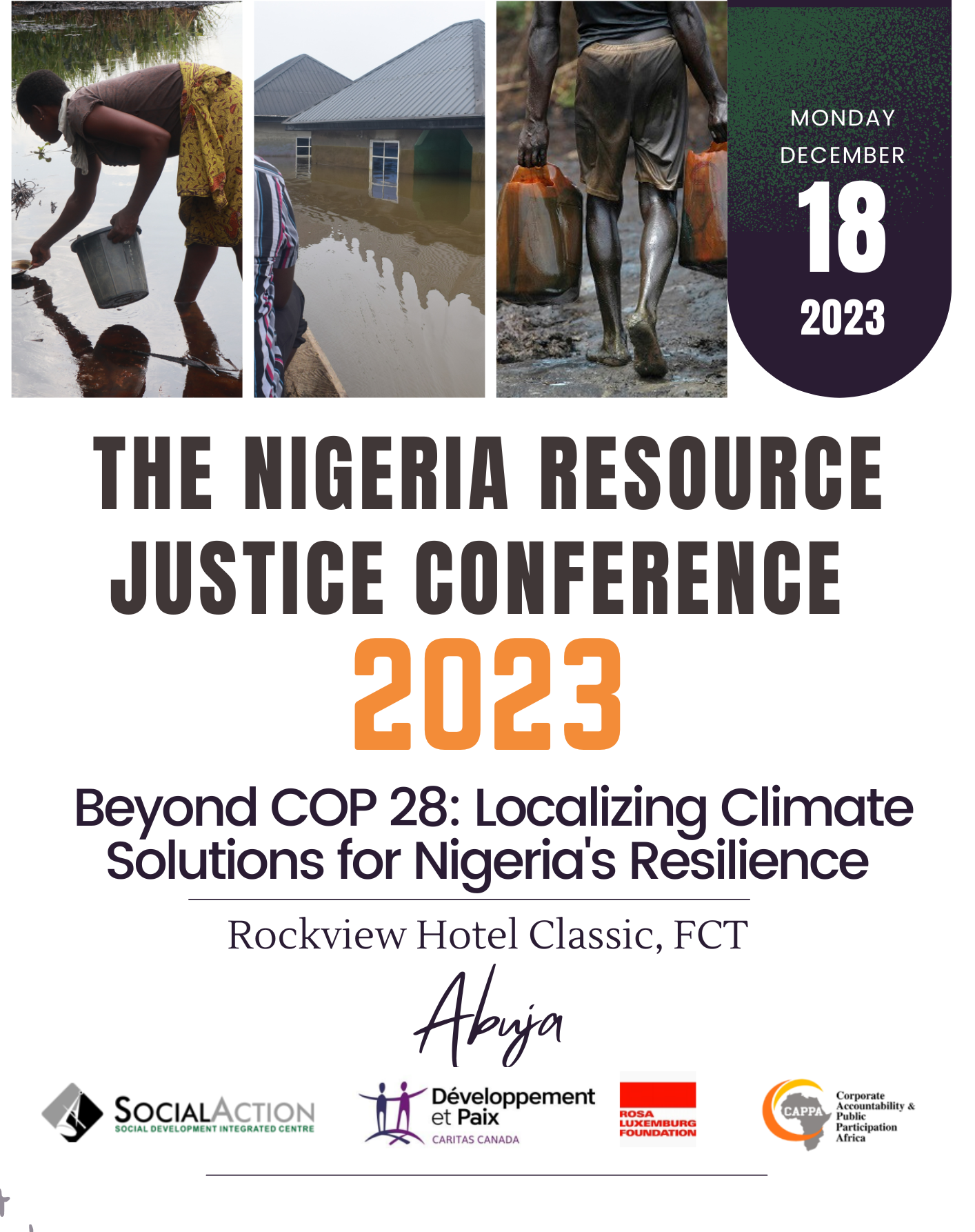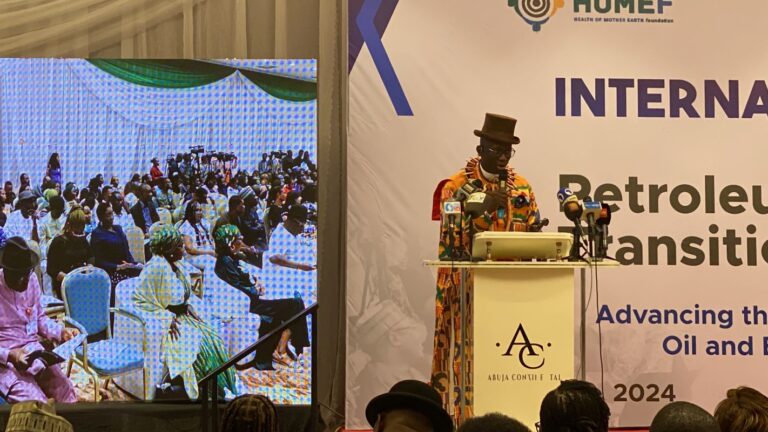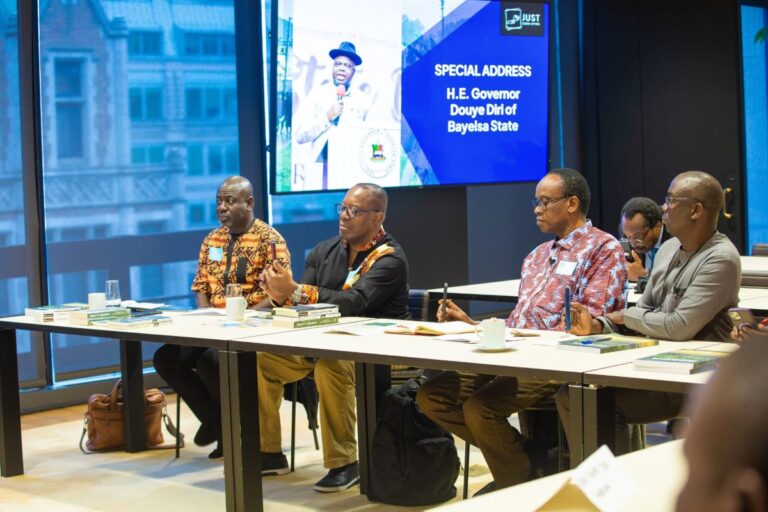THE NIGERIA RESOURCE JUSTICE CONFERENCE 2023
THEME: Beyond COP 28: Localizing Climate Solutions for Nigeria’s Resilience
Rockview Hotel Classic, Abuja, FCT | Monday, 18th December, 2023
In the wake of COP 28 in Dubai, the Nigeria Resource Justice Conference 2023 will be held in Abuja to examine international climate agendas further and to shape actionable strategies specific to Nigeria. At COP 27 in 2022, developing countries advocated for improved funding to support victims of climate change, especially in the global south. Since then, progress in climate financing has been slow. With COP 28 ongoing, there is an anticipation of new global resolutions. The Nigeria Resource Justice Conference 2023 will focus on incorporating COP 28’s outcomes, particularly in climate adaptation, finance, and technology, into Nigeria’s unique environmental and socio-economic context.
NIGERIA’S CLIMATE CRISIS AND THE RELEVANCE OF COP 28 OUTCOMES
Nigeria, Africa’s most populous nation, faces a myriad of climate-related challenges that are exacerbating existing environmental, social, and economic crises. These include environmental degradation which manifests in serious ecological crisis such the shrinking of Lake Chad, increased desertification in the North, and coastal erosion in the South. These changes have severe implications for agriculture, water resources, and biodiversity and by extension human development particularly in the Northeast.
The extreme weather events which the country has witnessed more frequent in form of intense weather events such as flooding, droughts, and heat waves are further manifestation of climate change disasters in Nigeria. The 2022 floods, for instance, were some of the worst in decades, affecting millions and highlighting the country’s vulnerability to climate change with severe direct socio-economic impacts, including food insecurity, displacement of populations, and increased conflict over dwindling resources, notably in the Lake Chad region where ecological changes have fueled insurgencies and humanitarian crises.
The outcomes of COP 28 are particularly relevant to Nigeria for several reasons:
• Adaptation Measures: Adaptation Measures: COP 28’s focus on adaptation measures is crucial for Nigeria, not only to develop strategies addressing its specific climate vulnerabilities in agriculture, water management, and urban planning but also to tackle the escalating conflicts in the Sahel and Lake Chad Basin, which are exacerbated by climate change. Additionally, these measures are vital in managing the massive dislocations and disruptions caused by extreme weather events, including the widespread flooding seen in various parts of Nigeria. These strategies should aim to mitigate the impact of climate change on vulnerable communities, prevent further ecological degradation, and promote sustainable resource management to alleviate conflict and displacement.
• Climate Finance: The discussion at COP 28 about global climate financing mechanisms presents an opportunity for Nigeria, but it also necessitates a critical examination, especially in the context of the inadequacies of the global carbon offset system. While these mechanisms are vital for funding Nigeria’s climate action plans, including investments in renewable energy and climate-resilient infrastructure, there is a need to address concerns about potential land grabs associated with forest carbon offset projects. Any climate finance strategy for Nigeria must be equitable and recognize the realities of ecological debt. How can we ensure that climate finance mechanisms do not exacerbate existing inequalities or environmental injustices, but rather contribute to a just and sustainable approach to climate mitigation and adaptation?
• Technology Transfer and Capacity Building: Access to new technologies and expertise, a likely outcome of COP 28, is essential for Nigeria to enhance its climate monitoring, mitigation, and adaptation capabilities.
CONFERENCE OBJECTIVES
- Formulating Actionable Civil Society Strategies Post COP 28: Galvanize Nigerian civil society organizations to utilize COP 28 outcomes to address the country’s specific climate issues, including conflict and displacement in the Sahel and Lake Chad Basin?
- Strengthening Nigeria’s Climate Policies and Institutional Frameworks: Align Nigeria’s existing climate policies, including the Climate Change Act and NDCs with the commitments and frameworks established at COP 28 while promoting discussions around institutional changes necessary for the effective implementation of these adapted policies.
- Securing Financial and Technological Support for Climate Action: Identify whatmechanisms Nigeria can leverage to access global climate financing, as discussed in COP 28 and the role of donor community in advancing climate actions through climate finance programs. The conference will also look at how Nigeria can enhance its climate mitigation and adaptation capabilities through technology transfer and capacity building.
- Enhancing Institutional Capacity for Effective Climate Governance: Espouse steps that can be taken to strengthen institutional capacities in Nigeria for better climate governance. Advance discuss on how local and international expertise and resources can be harnessed to support these efforts?
- Accelerating Just Green Energy Transition: Promoting dialogue around industrial decarbonization through effective and innovative climate actions. What should Nigeria thinking around industrial decarbonization actions and the strategy for just energy transition. What does Just Energy Transition mean to Nigeria, its economy and social existence?
CONFERENCE PARTICIPANTS
The Conference will convene a diverse group of stakeholders, encompassing government officials, policymakers, climate experts, international development partners, civil society organizations, academics, and media representatives. This inclusive approach ensures a comprehensive understanding of Nigeria’s climate challenges and opportunities, facilitating the creation of a unified and effective response strategy.





